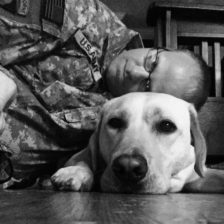Sometimes it takes sheer courage and strength to ask someone “are you okay?” And sometimes, it takes that courage and strength to answer. I’ve been told that sometimes getting a response of “I’m fine” to that question (“Are you okay?”) is not a good thing. Especially if it comes to mental health. What if they are not actually fine? What if they are fine? Are they going to be offended? What do you do if the person is not okay?
I think we often ask this question because we are not sure how to ask another and we are not sure to respond if the answer is “no.”
But, by not trying to help, listen, or ask another question, aren’t we just avoiding? Are we really helping? Are we reducing the stigma around mental illness?
So, if you are asked, or you ask that sometimes dreaded question of “are you okay?” A simple response (if you aren’t sure what to say, or you don’t know if you’ll be able to respond in a proper way would be to say, “I’m sorry to hear that.” That phrase is a good response and it also could lead to a follow up question such as “do you want to talk about it?” Maybe from that response, body language or facial expression, you can gather if that would be a good thing to continue, conversation. After all, sometimes a conversation is all you need.
Speaking of conversation—�
Sometimes just listening is a great comfort. This also shows that you care. There are often too few opportunties in our busy and hectic lives that can lead us to connection and kindness. Sometimes people find it easier to talk when doing something like going for a walk, rather than sitting across a table from someone. Sam and I will take evening walks and usually that is a nice time for us to just chat—�talking about our day, talking about what might be on our mind, and also—�it is quality time spent together.
A conversation could change the life of someone, or even their thoughts for the day. Numerous times I have been stressed out, I’ve worried, and just by someone simply asking me “how’s it going?” Or “how are you?” All the things come out. By expressing the concern I have over being stressed or worried, I can connect, and it is also a relief at times to be able to talk to someone who will listen.
Compassion can have a profound effect on someone who is going through tough times.
Being patient can help too. Sam and I have had moments where we’re both stressed, tired, and sometimes, the conversation just needs to be relaxed or funny before we can talk about something serious. Have you ever laughed when you shouldn’t? An example would be to burst out laughing in the most serious of moments, to snort and giggle when you should be focused and not cracking a smile? We tend to do that. One person told me that Sam needed to be more serious. I laughed. (Another example) So, being patient, easing into conversations can really help. And, sometimes when timing is right, it just happens—�the words come out, and before you know it, you are having a conversation that could make a huge difference to someone.
Be supportive—�if someone is having difficulty responding to the “are you okay?” question, be supportive. When someone understands anxiety, PTSD, depression, etc., they feel like no one understands. Mostly it is because they may or may not know someone who feels the way they do. Just telling them you can support them can bring them comfort. I have said many times to Sam, “I don’t know what you are feeling because I don’t know what PTSD is like, but I’m here.” Also, hugs. Hugs are good too.
Try not to stress someone else out by asking all the things. Ask what you could do to help them feel less stressed, or what could be done to help them relax. See if there’s something you could take off their “to-do” list. Take your time. Don’t push, and definitely don’t ask “why aren’t you doing better yet?” Telling someone with PTSD to just get over it or just get better is not a good bit of advice. In fact, it is awful. Just don’t say anything like that at all.
Sometimes things are not okay. Sometimes a person just needs to hear that everything is going to be okay. Remember, be kind for everyone you meet is fighting a hard battle.

That’s sweet Memphis. Always kind. Always listening. He is super focused on his dear ol dad at church (working for that treat).
